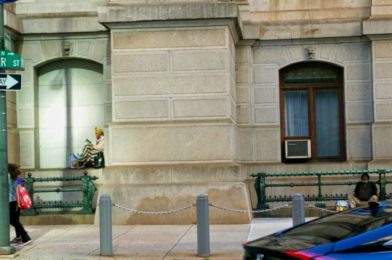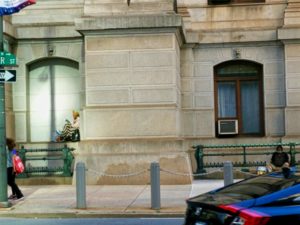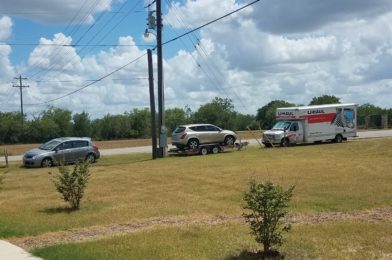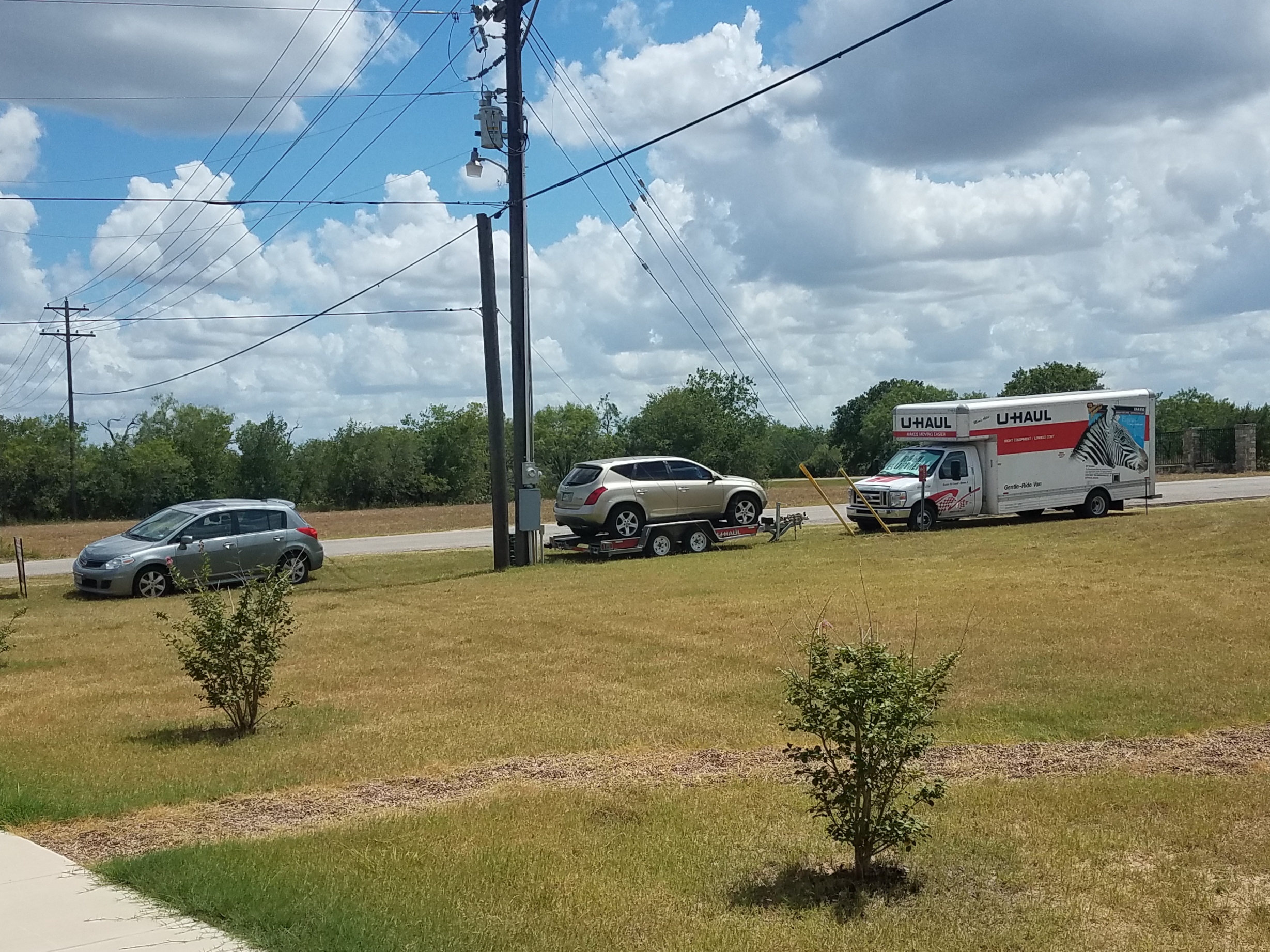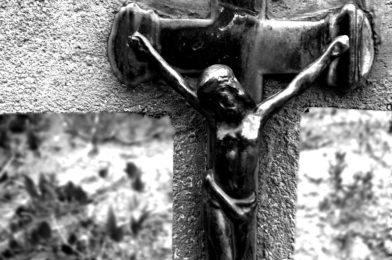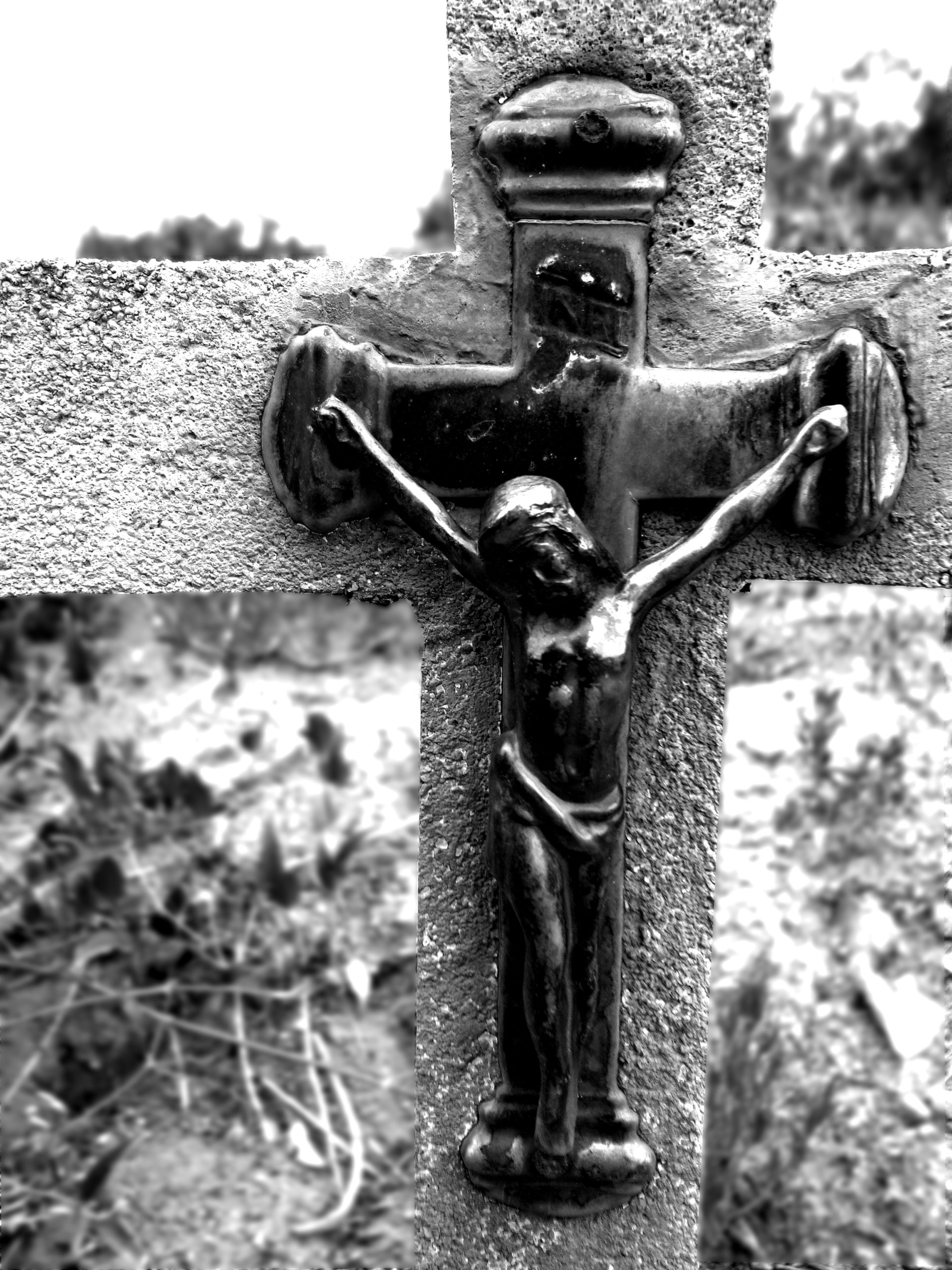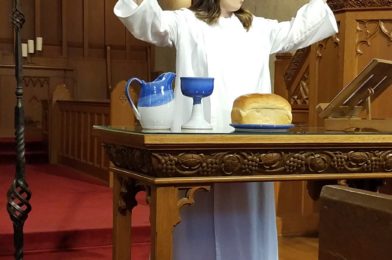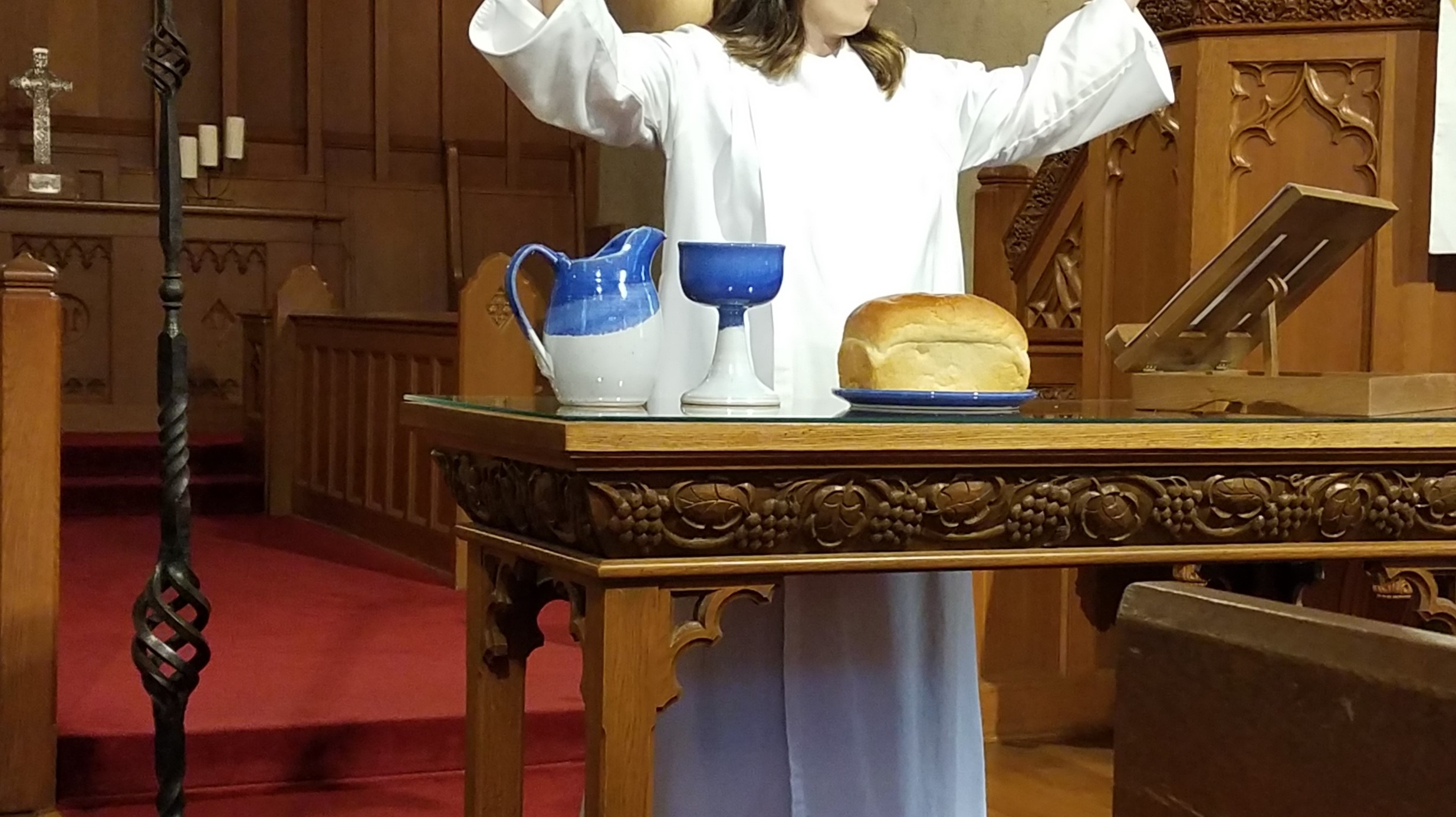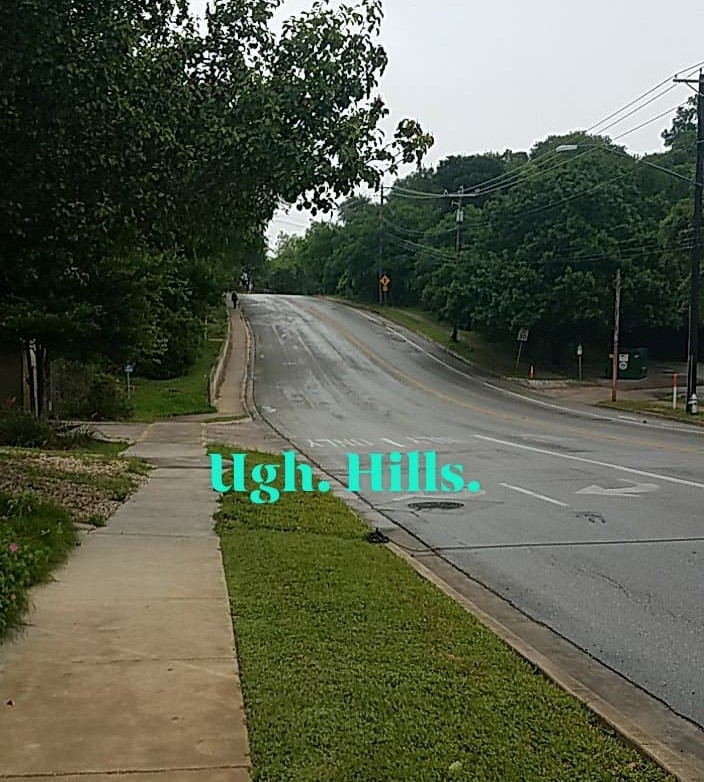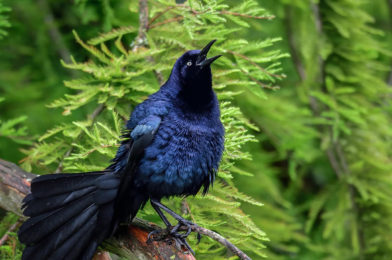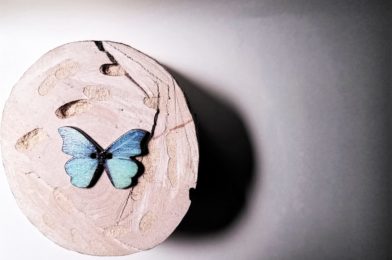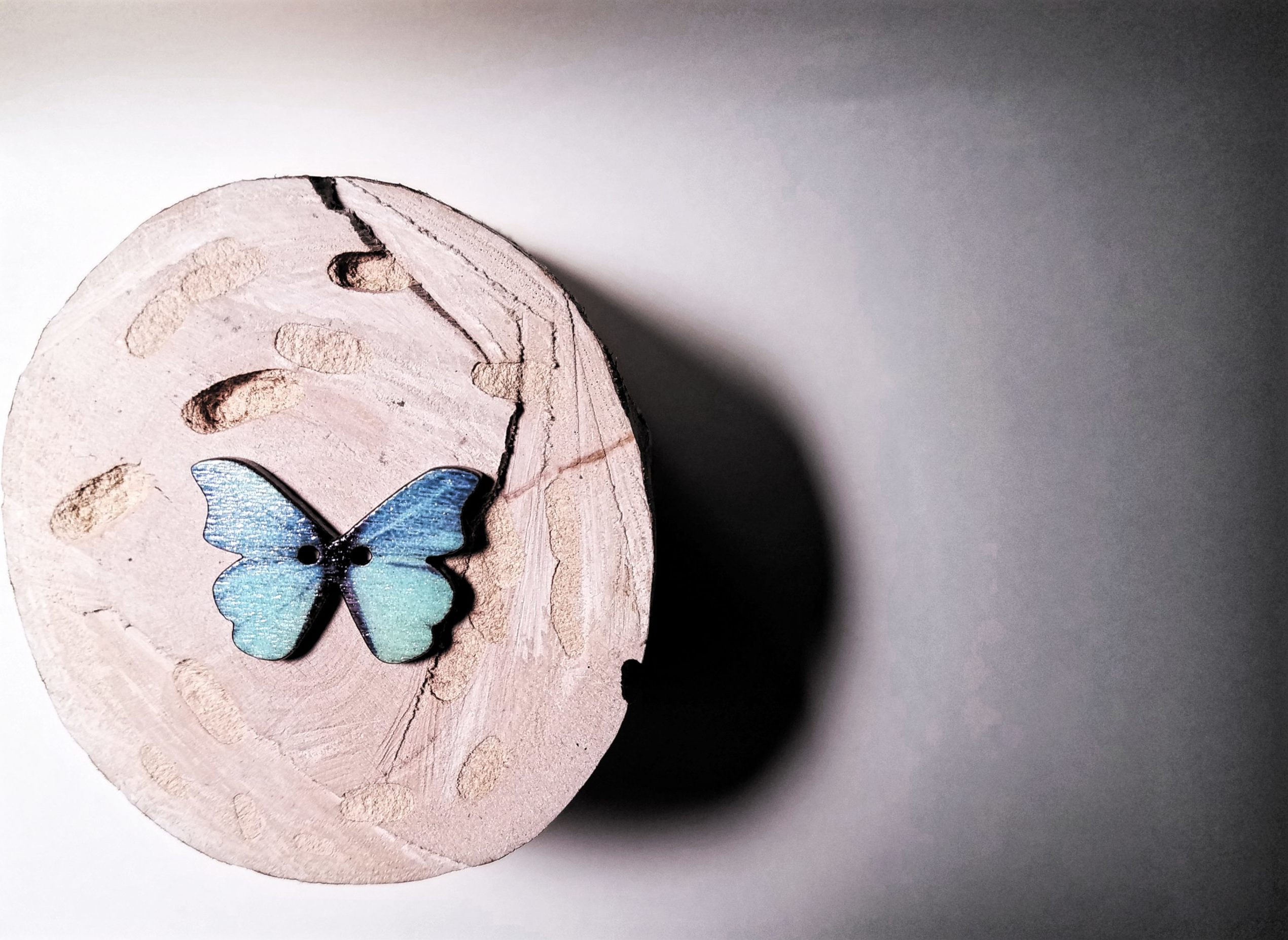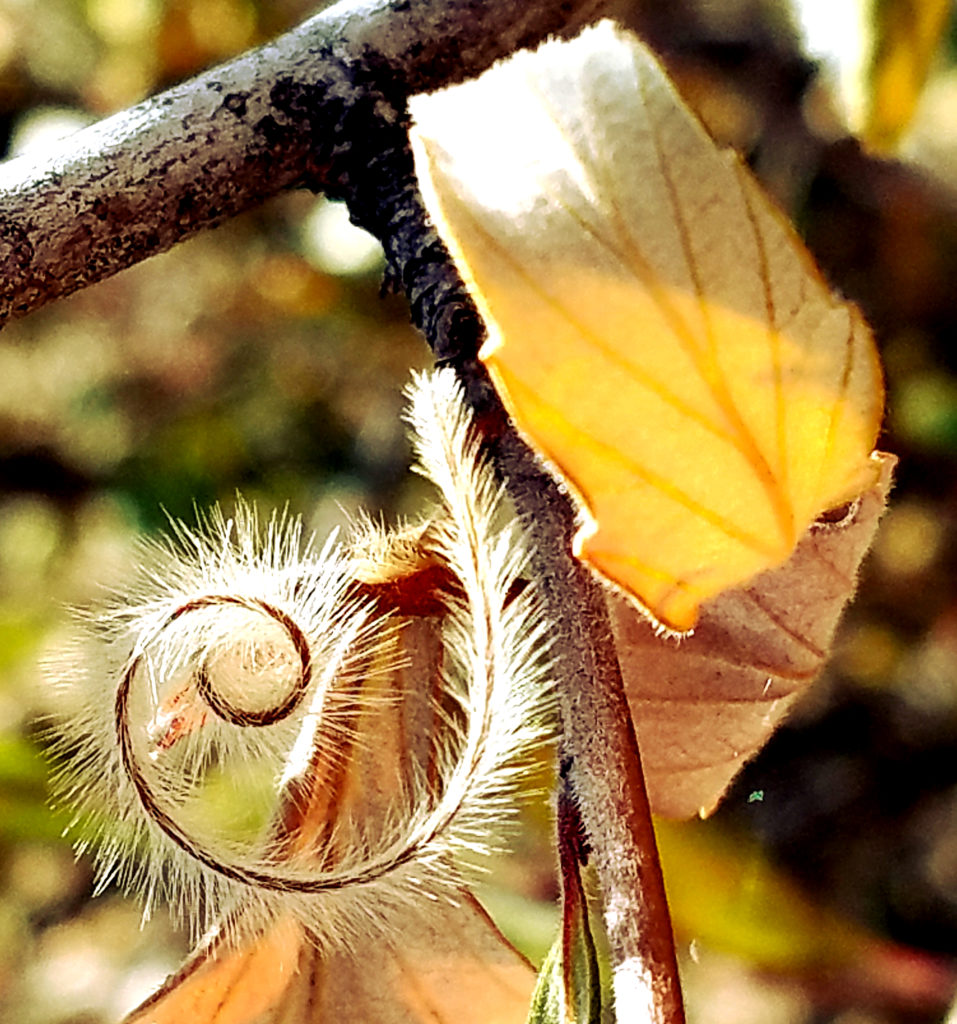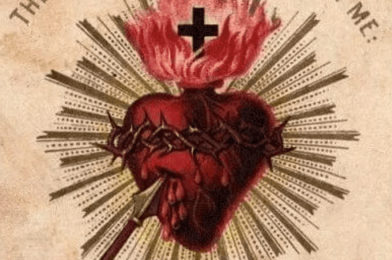Look, this is going to end with one of those endings that we appreciate but still roll our eyes over it. Like, in my preaching class, a young man was delivering this really great sermon and it was all tossed out when he ended a sentence with, “…and that boy was me.” We all contained our laughter as best we could and we recognized the power those phrases don’t always have. And this is going to end like that, but don’t toss this out. Please.
My partner and I were in seminary together (we met there (fun fact: I did not like her when we met (at all))) when she rescued this cat named Muji. She’d been talking about getting another cat but this wasn’t just another cat. This was a special-needs cat who would need a lot. I had a general understanding of Muji’s condition when Chelsea May adopted him, and I wasn’t too keen on the idea because I was keen on her. I wanted to be with her for the long-term and adding a handicapped cat – a handicat – into the mix wasn’t what I had in mind.
I also had a general understanding that when Chelsea May sets her mind on something, nothing can change it. She had fallen in love with this cat and the expression of my emotions and feelings about it were appreciated and taken under advisement. And then we went and she filled out the paperwork to adopt him.
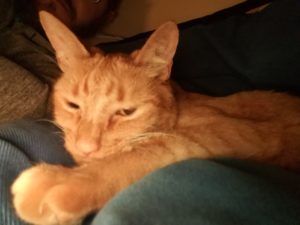
Muji was an orange tabby with long, spindly legs and patchy fur partially covering his ribs and hip bones. His mouth was more gum than tooth. He had a neurological disorder similar to CH (cerebellar hypoplasia) which caused him to walk with a wobble, stammering across the floor in uncontrolled stops and starts. When he lost his balance he would fall onto his side, yet somehow he would still make progress in the direction he was headed. He used his claws to his advantage, dragging himself across rugs and up pant legs and the sides of furniture. For being a handicat, he was certainly very mobile.
Unfortunately, Muji couldn’t make this physical ailment go away, so the litter box situation was almost always a disaster. And when Muji was startled he would – with super-cat-like strength and agility – he would just launch himself across the room. So if he was in the litter box pooping and he lost his balance and fell backwards into said poop, he would then be startled by the poop now in his fur, and so all rockets would be fired and he would zoom across the floor. And the poop on the fur would then be the poop on the floor, and he would be over in the corner somewhere trying to get fresh poop out of his fur with his tongue, and that was a nearly-daily thing.

Muji was a handicat but he didn’t let his disability keep him from being a cat. He liked to chase toys and laser lights, falling and stumbling along the way, eventually just swatting away at the air and the toy as he lay on his side, eyes desperately seeking the target. He loved food…he loved food the way I love food (and I really love food); if he heard crinkling plastic which may have made a similar sound to his cat treat bag, he would come bumbling and fumbling across the floor yelling his loudest meow in a desperate attempt to get food. The sound of a can opening sent him into fits of uncontrollable excitement and when the food was set before him he became something similar to the Cookie Monster, but instead of delicious cookies it was wet, pureed cat food…everywhere…oh my goodness it went everywhere. And that “being startled” thing and flinging himself across the floor I mentioned earlier? That would happen with food, too.
Aside from the poop and pee and food in his fur and on the floor, he was a pretty good cat for a cat. He was snuggly and wanted to be near people. He wanted to be held and loved – Chelsea May had a papoose that he loved to sleep in as Chelsea did her chores. This cat was relentless in his desire to not only be loved, but to love. He pursued you to get into your arms because he wanted to be with you. He would journey for ten minutes to get across the house to find where the people were and yelled until you held him. He sought out affection and love and did not stop until he received it.

But I wasn’t having it. I wasn’t the biggest fan of this cat (everyone else was) and I did my very best to tolerate his existence in my life and in my relationship with my partner. He felt like a burden to me and my future. He felt like he was more trouble than it was worth. He felt like he would be too much for Chelsea May and I didn’t want to carry that weight.
As much as it sounds like I was, I promise I wasn’t this way because I’m a heartless ogre; I was this way because I wasn’t doing well myself and my mental space was too clouded and crowded to bring in another being that needed my time and attention and energy. Someone else could take care of this cat. Someone else had better resources to take care of this cat. Someone else would have more time to spend with this cat. Someone else had a partner who could enjoy a special creature like Muji. And in those days, I wasn’t that someone.
As I moved through seminary it was pretty apparent to me that my mental health wasn’t spectacular, but it wasn’t terrible; I wasn’t in need of medical intervention because I thought I could get out of that depression pit on my own. Exercise and lots of sunlight and hanging out with people and doing the things that bring me joy – that’s what I was doing and it was keeping me afloat. But then the COVID lockdowns hit and all of the things that kept me going were no longer present to keep me going.
I suffered in those early days of COVID and I experienced a number of great losses. I lost out on a graduation ceremony from seminary. I lost out on the dream wedding with my wife. I lost out on saying goodbye to friends. I lost out on healthy endings, so when I started my first pastorate in southwest Missouri I was at an all-time low in my life and had unhealthy beginnings in my work and life in Missouri. The job of a pastor is already difficult, but the difficulty is only compounded by a pandemic, a fair election called fraud with an attempt to overthrow the government, a large dose of an unhealthy congregation, anticipatory grief, and loneliness. All of this was what my mind, body, and soul was wrestling with as I moved into this new position and I knew I needed to do something different, so I talked with my doctor who prescribed me some antidepressants and I began meeting with a therapist.
It took a few months, but roughly a year after moving to Missouri and taking medicine and seeking therapy, I was feeling good; I was feeling like myself again and the world wasn’t nearly as difficult to live in as it was before. Don’t get me wrong, the world was still terrible (COVID variants, Trump’s 2020 election schemes, degrading of the Supreme Court, etc.), but I was in a better place mentally to deal with it all.
One day I was at home getting lunch and Muji heard the refrigerator open so he came tossing and shuffling and groping into the wind to make progress into the kitchen to see what he could find to eat and something startled him. Remember when I said that when Muji was startled he would – with super-cat-like strength and agility – he would just launch himself across the room? He did that this day and bonked his head on the wall, something I’d seen him do a hundred times before, but this day…this day it was different. This day, as I looked down at that poor, helpless orange-ish cat, I saw for the first time the beloved creature Chelsea May had seen the whole time. For the first time I saw a little being made by God that needed love and wanted to give love. For the first time I saw one of God’s little creatures who needed help. As he lay there at my feet yelling at me for food and attention and pets I saw and heard the cry of God’s beloved.

When I was mentally in a good place I could see the world around me for exactly what it was. I could see the ones who loved me and wanted me to succeed. I could see what losses I needed to accept and what I needed to walk away from. I could see that there was hope and promise and something better. And I saw all of that when I looked down at that feline; when I looked at Muji I knew that it was okay and things were getting better. Despite his disabilities and his challenges, that damn cat pursued me since he set his wobbly little foot in Chelsea’s home because he wanted to love me, and he kept coming after me day after day after day until he won me over.
For the first time since he had been a part of our life, I had the ability to see Muji as a lovely and loving cat that I desperately needed. He could have written me off – many pets have that ability and can just ignore people they don’t like (some go so far as to bite those they don’t like), but Muji didn’t have a mean bone in his body. He was, in some strange way, a furry embodiment of what love was and what love wasn’t.
Love wasn’t going to stop its pursuit. Love wasn’t going to discriminate. Love wasn’t going to bother with formalities or always doing things in a regular way. Love wasn’t always show up clean and neat and tidy. Love wasn’t always going to look ‘normal’ (whatever that is). Muji showed me and all who met him that love is love is love and there’s a whole lot of people and animals and spaces that are filled with love just waiting to be accepted.

While Muji had been in my life for nearly three years, it was in his final few months that I came to appreciate and love him as much as he always had appreciated and loved me. I looked at his matted hair and ever-more-prominent hip bones (he was struggling to maintain weight) and saw a lovely little being with a dumb face that wanted to love me. I looked at his mouth perched open as he slept, heavily purring, and saw a contentment I so wanted in spite of all my pains and hurts. I looked at his herky-jerky movements and saw determination that somehow motivated me to keep marching forward until I got what I wanted. This little orange cat pursued me and loved me and you know, (prep your eyeroll) while Chelsea May had rescued Muji, somewhere along the line, it was Muji that did the rescuing.

All I can say now is thanks be to God for the pursuit of love. Thanks be to God for Muji.
P.S. – We have always had Christmas stockings for the animals (who am I?) and when Muji died, Chelsea May and I chose to keep filling his stocking every year and donate the gifts to a local shelter. This year is our third year doing this and we wanted to open it up to others. So, if you’d like to contribute to Muji’s Stocking Fund, you can do so here: https://gofund.me/485e28ae
much love. sheth.

